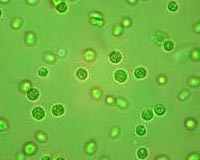 |
London UK (SPX) Apr 14, 2011 Current UK and European policies on biofuels encourage unethical practices, says a report by the Nuffield Council on Bioethics following an 18-month inquiry. Policies such as the European Renewable Energy Directive are particularly weak when it comes to protecting the environment, reducing greenhouse gas emissions and avoiding human rights violations in developing countries. They also include few incentives for the development of new biofuel technologies that could help avoid these problems. "Biofuels are one of the only renewable alternatives we have for transport fuels such as petrol and diesel, but current policies and targets that encourage their uptake have backfired badly," said Professor Joyce Tait, who led the inquiry. "The rapid expansion of biofuels production in the developing world has led to problems such as deforestation and the displacement of indigenous people. We want a more sophisticated strategy that considers the wider consequences of biofuel production." "Researchers are developing new types of biofuels that need less land, produce fewer greenhouse gases and do not compete with food, but commercial-scale production is many years away," said Professor Ottoline Leyser, one of the authors of the report. "The government should do more to encourage research into these more ethical types of biofuels." In its report 'Biofuels: ethical issues', the Nuffield Council recommends that there should be a set of overarching ethical conditions for all biofuels produced in and imported into Europe, including:
1.Biofuels development should not be at the expense of human rights "These ethical conditions should be enforced through a certification scheme - a bit like the Fair Trade scheme for cocoa and coffee," said Professor Tait. "This would create a market for environmentally sustainable and 'human rights friendly' biofuels." "We appreciate the difficulties in applying firm ethical principles in the real world, but existing biofuels policy is failing. We can set the standard in Europe and encourage the rest of the world to follow suit. This is a global problem that needs a global solution."
Current biofuels The two main transport biofuels currently in use are bioethanol, made from maize and sugar cane, and biodiesel, made from palm and rape seed oil. The European Renewable Energy Directive states that 10% of transport fuel must come from renewable sources by 2020. In the UK, 5% of transport fuel must come from renewable sources by 2013. To meet these targets, biofuels are being imported from countries that do not all have responsible or enforceable policies on climate change or human rights. The targets also rely on voluntary agreements on environmental sustainability for biofuels produced outside the EU.
New biofuels "There is a duty to develop biofuels that comply with our ethical principles," said Professor Tait. "Governments should incentivise the development of new types of biofuels that need less land and produce fewer greenhouse gases, for example by creating research funding programmes or encouraging public-private partnerships."
The wider picture "We have developed these ethical principles with biofuels in mind, but we urge policy makers to use them as a checklist for all new technologies. Biofuels, if produced in an ethical way, have great potential to contribute to the energy mix, but they alone cannot solve our problems." Biofuels currently make up 3% of UK road transport fuel and this is expected to increase. Most of the UK's biofuel comes from Argentina, Brazil and Europe. Last year, only a third met the environmental standards set by the UK's Renewable Transport Fuel Obligation.
Promising initiative A promising global initiative is the Roundtable on Sustainable Biofuels. This independent organisation has set out voluntary standards for biofuels covering human rights, greenhouse gas emissions, conservation, and use of natural resources across the entire lifecycle of the biofuel. "The standards set out by the Roundtable on Sustainable Biofuels provide a good starting point for the international certification scheme for biofuels we are recommending," said Professor Tait.
Share This Article With Planet Earth
Related Links Nuffield Council on Bioethics Bio Fuel Technology and Application News
 Nanoparticles Increase Biofuel
Nanoparticles Increase BiofuelCollege Park MD (SPX) Apr 13, 2011 How to put more bang in your biofuels? Nanoparticles! A new study in the Journal of Renewable and Sustainable Energy shows that the addition of alumina nanoparticles can improve the performance and combustion of biodiesel, while producing fewer emissions. Why add nanoparticles? The idea, says lead author R. B. Anand, an associate professor of mechanical engineering at the National In ... read more |
|
| The content herein, unless otherwise known to be public domain, are Copyright 1995-2010 - SpaceDaily. AFP and UPI Wire Stories are copyright Agence France-Presse and United Press International. ESA Portal Reports are copyright European Space Agency. All NASA sourced material is public domain. Additional copyrights may apply in whole or part to other bona fide parties. Advertising does not imply endorsement,agreement or approval of any opinions, statements or information provided by SpaceDaily on any Web page published or hosted by SpaceDaily. Privacy Statement |